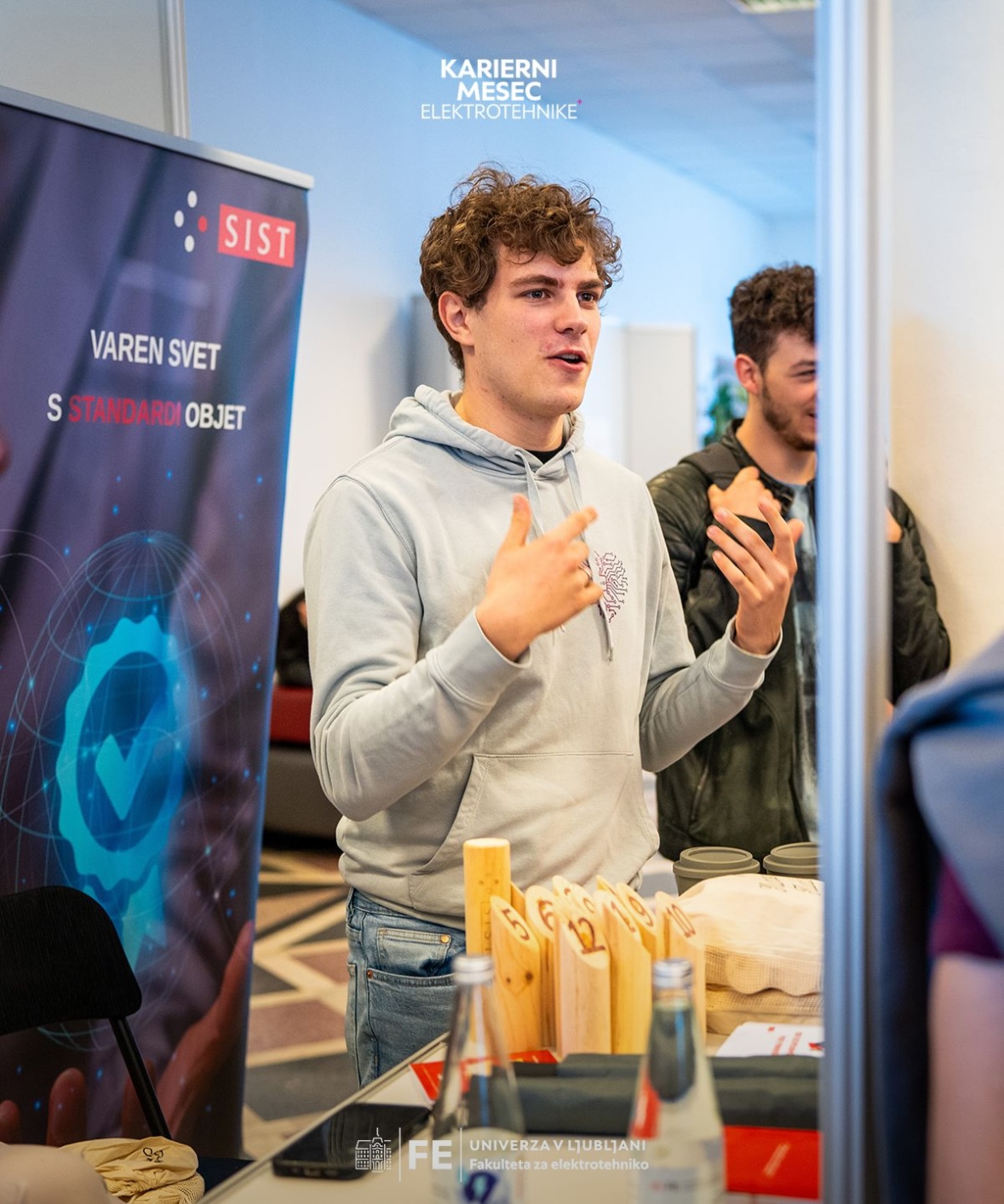In April, the Slovenian Institute for Standardization (SIST) participated in two important events that highlighted the broad impact of standards – one aimed at the professional community and the other at students and young people.
This year, the event “5 Minutes for Measurement”, held for the 10th time at the Faculty of Electrical Engineering, University of Ljubljana, was dedicated to the 150th anniversary of the Metre Convention, a cornerstone in the field of metrology. Attendees learned about the impressive achievements of Slovenian laboratories and how measurement is not only a scientific discipline but a foundation of trust and quality in everyday life.
SIST’s Young Standardization Ambassadors, Eva Pevec and Erik Simić, presented the mission and work of SIST, explained the importance of standards in ensuring the comparability, repeatability, and reliability of measurements, and illustrated how standards affect everything from consumer products to cutting-edge technologies. They also encouraged students to apply for this year’s Autumn School of Standardization, taking place on 12–13 November 2025, which offers a unique opportunity to explore the world of standards and develop future-ready skills.
At the same time, SIST also took part in the 27th Energy Days, held on 14–15 April in Portorož, where energy professionals discussed key topics such as energy efficiency, sustainability, and the resilience of businesses in the face of geopolitical uncertainties. In addition to lectures and discussions on smart energy solutions and the transition to a low-carbon society, the event emphasized networking and knowledge exchange.
Eva Pevec and SIST colleagues engaged with company representatives to discuss the use of standards in the energy sector, upcoming standardization initiatives, and the importance of making standards more accessible and better understood by both businesses and the broader public. One key takeaway was that standards are not just technical documents but living instruments that promote innovation, safety, and cooperation.
Both events reaffirmed the growing relevance of standardization across disciplines and generations – helping to build a more connected, efficient, and forward-looking society.




